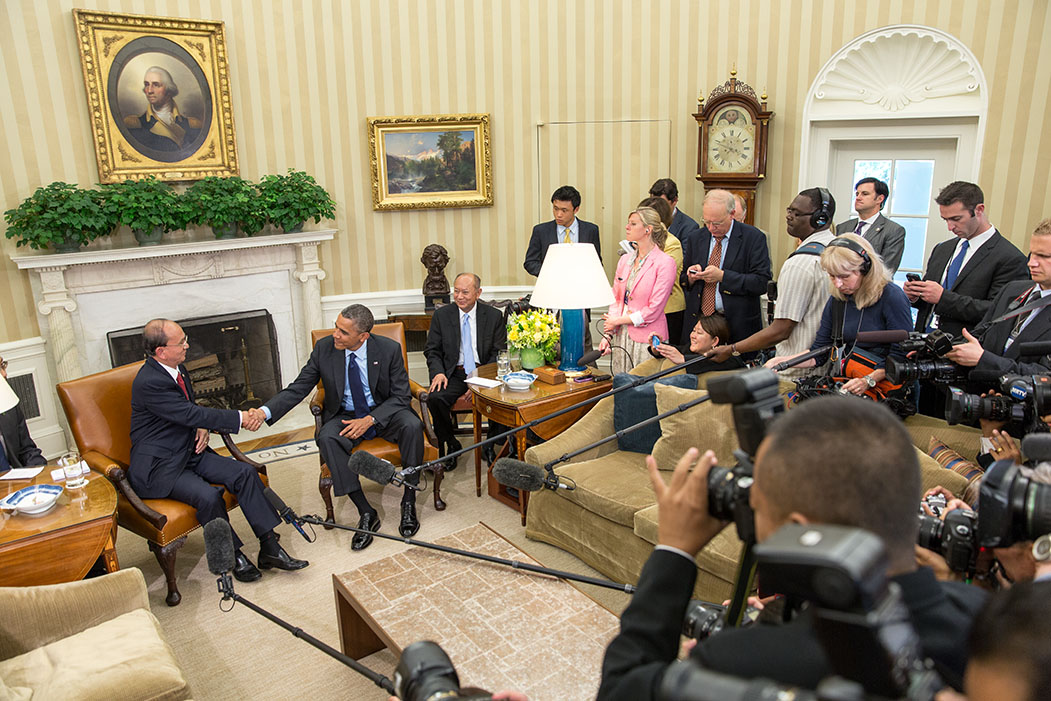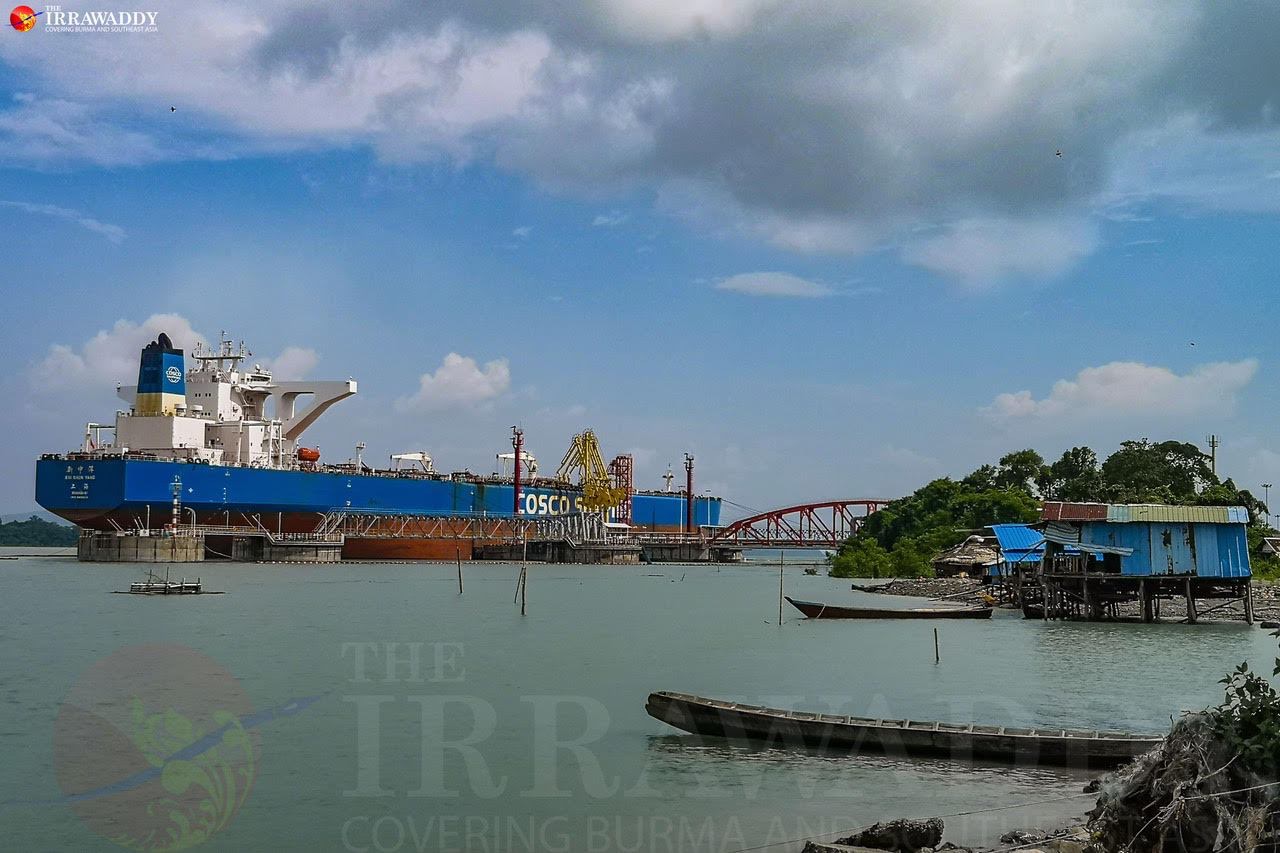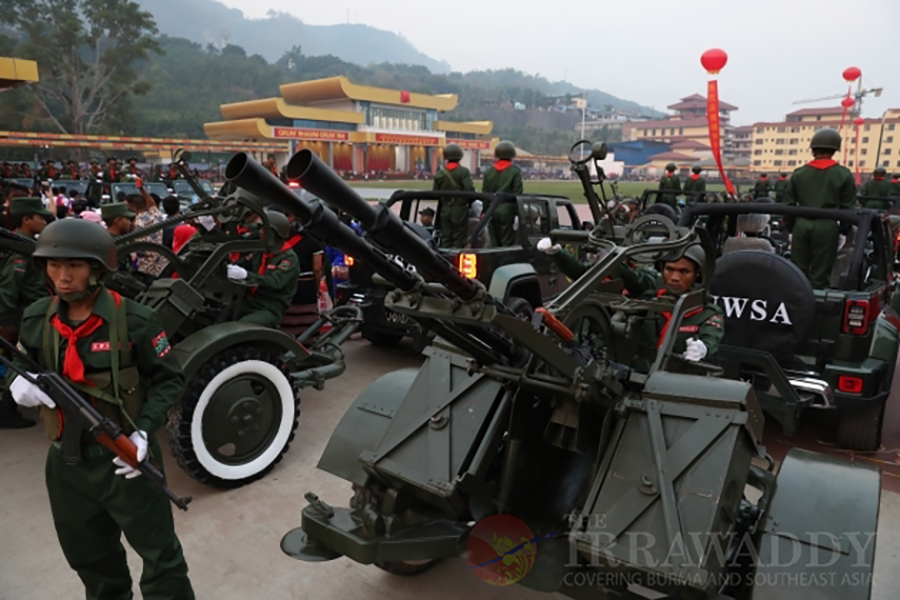The ongoing war of words between the Chinese and US embassies in Myanmar is reminiscent of the Cold War period. Or does it signal the start of a new Cold War in Myanmar? If so, we can expect (and should prepare ourselves for) proxy warfare and more conflict in the future.
It is expected that tensions will only increase between the US and China over Myanmar, particularly regarding the issue of the erosion of sovereignty.
The fact is, China is not popular in Myanmar, but high-ranking officials in Naypyitaw were nonetheless alarmed by the barrage of attacks between the two embassies, so it should come as no surprise if we see a statement from the government in state-run newspapers soon. It would be bizarre if no statement were issued; Myanmar is an independent nation and its sovereignty should not be compromised and must be respected.
It is foolish to expect Myanmar to take sides. It is not a major power and will therefore continue to pursue a neutral foreign policy. This will not please some countries, including the US and China. Maintaining this delicate position will no doubt only raise more suspicion on the Chinese side, since Sino-Myanmar relations have never been straightforward.
Neutral foreign policy
In October 2019, in an interview with Nikkei Asian Review, State Counselor Daw Aung San Suu Kyi said, “Our country has maintained a very neutral and, in my opinion, a very commonsensical foreign policy ever since we became independent. [Because] we are a small nation, not yet developed, we [were] never at the stage where we were able to call the shots, as it were.”
A few weeks after coming to power, Daw Aung San Suu Kyi received the first high-ranking Chinese officials to visit her office. She is fully aware of Chinese concerns and apprehension over growing Western influence.
The truth is, she owes both the Chinese and the US.
President Xi Jinping invited her to Beijing when she was opposition leader in 2015. It was a strong indication that Beijing was betting on her role in the countries’ future relationship.
On the other hand, the US earlier played a crucial role in campaigning for her release from house arrest, and supporting the democracy movement in Myanmar. So it is safe to say that both the US and China have invested in Aung San Suu Kyi and the political transition in Myanmar, and they expect a return.
On China, dealing with Myanmar’s giant neighbor will never be straightforward.
Daw Aung San Suu Kyi once said that “ties between neighbors are always more delicate than those between countries far apart.”
Indeed, prior to the current spat, there were warnings from China. The Global Times, a mouthpiece of the Communist Party of China, published an article a few days after Daw Aung San Suu Kyi’s party came to power saying that closer ties with the US at the expense of Chinese strategic interests would not serve Myanmar’s long-term interests. The message to her government was clear: Don’t mess with China.
Bertil Lintner, the author of several books on Myanmar and on China-India relations, commented that regardless of who has been in power in Myanmar, “neutrality has always been a cornerstone of Myanmar’s foreign policy since its independence.”
That is not surprising, he said, because… “Myanmar is squeezed between two Asian giants which are also regional rivals: China and India—and then, in the east, Thailand, which at least in the past was seen as a Western ally.”

‘The cooked duck flew out of the window’
Myanmar leaders, whether in civilian clothes or in uniform, will continue to play it safe with China.
In the past, Myanmar’s heavy reliance on China led to discontent among the population. Regime leaders including retired Senior General Than Shwe thought about distancing Myanmar from China and discussed ways of reducing its heavy reliance on the country.
By holding the election in 2010 and introducing a range of political reforms, his hope was that Myanmar would re-enter the international community and shed its pariah status.
Under President Thein Sein, a former military general dubbed a “reformer”, the country improved its relations with the West, including the US. Myanmar people generally celebrated the improving US-Myanmar relationship and welcomed the lifting of US sanctions.
Acknowledging the reforms and the opening of the country, President Barack Obama visited Myanmar twice. This rapid fostering of relations between Myanmar and the US surprised and upset the Chinese. Events in Myanmar, on China’s doorstep, were a real strategic setback. Under U Thein Sein administration, we saw the decline of Chinese influence.
Dr. Aung Myoe, a lecturer at the International University of Japan and author of several books on Myanmar, argues that Myanmar’s foreign policy under President Thein Sein was a realignment, not a wholesale rebalancing in favor of the West, saying the country remained heavily dependent upon China.
Yun Sun, a China expert at the Stimson Center in Washington, said Chinese policy experts even referred to the developments at that time with a proverb: “The cooked duck flew out of the window.”
Then we witnessed China’s attempts to catch that cooked duck and put it back in the bowl—in other words, to regain its foothold on the ground in Myanmar. Since Aung San Suu Kyi came to power, China has slowly done that, regaining the upper hand in Myanmar.

Realignment sidelined
Dr. Aung Myoe believes that under the current administration the re-alignment policy has been sidelined, as the NLD government has grown more conciliatory toward China. Moreover, there is no policy coordination between the government and the military. Under the U Thein Sein administration, the military went along with the government’s policy.
Daw Aung San Suu Kyi is counting on China to play a role in the peace process in Myanmar. She has asked President Xi to assist Myanmar in this regard. But Myanmar’s military leaders have expressed concern over China’s continuing assistance to, and arming of, rebels along the China-Myanmar border. Now the peace process is in complete disarray.
Nonetheless, to Myanmar, China remains an important ally. On the Rohingya issue, the government needs China because of its political clout on the UN Security Council.
But can Myanmar maintain an “equal distance” from China and the US? The trouble is, neither a neutral foreign policy nor a nonaligned policy is cost-free.
Drawing lessons from the past, the Chinese won’t completely trust Daw Aung San Suu Kyi, either.
Political observers believe that in general, Daw Aung San Suu Kyi has adopted a cautious approach toward the Chinese. Her administration, well aware of the growing anti-China sentiment in Myanmar over several controversial Chinese projects and on the issue of sovereignty, successfully renegotiated the Kyaukphyu SEZ (special economic zone) agreement. Government officials said there is no risk of a debt trap under the new agreement terms. She has also been unusually vague on the controversial Myitsone Dam issue since coming to power, and the fate of the suspended hydropower project remains unresolved. Understandably, she is not going to stir up the hornet’s nest on that issue. Moreover, during President Xi’s visit to Myanmar in January there were no major economic agreements to accelerate the multi-billion-dollar China-Myanmar Economic Corridor signed between the two governments. For now, Beijing should follow Myanmar’s go-slow approach to China’s proposed major economic projects.
The fact is, Myanmar is weak and unstable, and this is exactly what China wants to see. There is not much Myanmar can do to change China’s view, its bullying attitude or its efforts to expand its power and influence by buying all groups, including armed groups.
Today, China has expanded its power and influence over Myanmar. It continues to expand its sway among ethnic armed groups in the north and support rebels in Rakhine and along the India-Myanmar border.
Over the decades, Chinese and Myanmar officials have customarily praised the bilateral “Pauk-Phaw” (kinship or sibling) friendship, but in reality this “friendship” is, it seems, built on Myanmar’s fear of “Big Brother” China, which has interfered in Myanmar’s affairs in the past and continues to do so.

Chinese clouds on the northern frontier
China can’t ask the US to leave Myanmar, but at the very least, it won’t allow Western influence to spread to the Chinese border. (If Myanmar is to be “divided” economically speaking, the West, along with Japan, will take over the South.)
David Mathieson, an independent analyst on Myanmar, commented, “Beijing is determined to transform northern Burma [Myanmar] into the spittoon of Yunnan, and has no interest in real peace and people-centric development.”
It is true. Except for the Kachin Independence Army (KIA), almost all of the armed groups on the northern frontier are in China’s pocket.
Mathieson added, “The Chinese embassy response was shrill and bizarre, I think they’re rattled that the US spoke so strongly. They know how unpopular they are in Burma. But it’s the people of northern Burma who will really suffer the most [in] this new Cold War: the Chinese have already staked a claim to Kachin and northern Shan State and don’t want the West anywhere near their sphere of influence. That’s what people in Burma should be more worried about than American bluster.”
So what about the US? Can Myanmar effectively reply to the US while it is under Trump?
Lintner said, “The United States, though, is far away and cannot do more than issue statements which are bound to upset the Chinese.”
On the other hand, the Swedish journalist and regional expert said, “China has the means to interfere in Myanmar’s internal affairs in many ways: economically, politically and through its close ties with a number of ethnic armed organizations.”
Mathieson expressed doubt over the US’s role in Myanmar.
He said, “US promises of solidarity to Burma can no longer be trusted. The fact is America is now a diminished and disreputable power, and has a track record of betraying its supposed friends when it suits Washington. The days of the US forging a deep partnership with Burma based on human rights, democracy and development are over.”
Indeed, Myanmar is not moving away from China but forging more friends and allies in the region, hoping to counterbalance Chinese influence. Myanmar should continue to develop its friendships with Japan, India, South Korea and the countries of Southeast Asia.
Lintner commented on the US, “Given the present administration’s seemingly erratic foreign policies, Washington’s commitment to Asia is also in doubt. If Myanmar wants to balance its relations with the immediate region and the outside world, I believe it would be better to do that by fostering closer relations with regional powers such as Japan and India.”
So how should we interpret the recent outburst between China and the US on Myanmar soil? Is it a sign that Myanmar is unable to manage relations with its old and new friends simultaneously? Or is it a failure of the realignment policy? Whatever the case, the signs are ominous.
You may also like these stories:
Mired in Inequality and Laid Low by the Virus, the US Offers Little to Emulate
What Do We Want a Post-Pandemic Myanmar to Look Like?

















